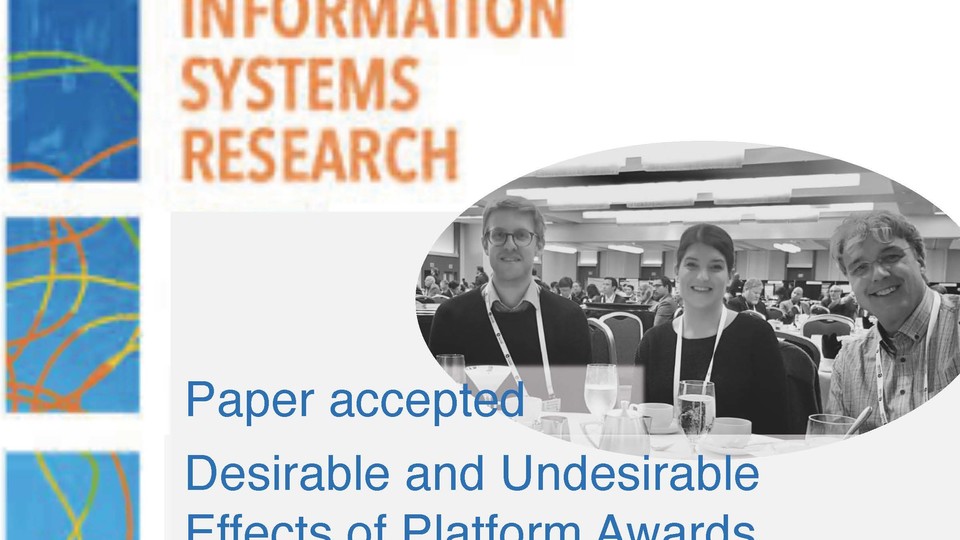And the Winner is ...? The Desirable and Undesirable Effects of Platform Awards: ISR accepts platform research paper for publication

Jens Foerderer, Nele Lueker and Armin Heinzl have successfully published their research paper on desirable and undesirable effects of developer awards on complementary innovation in platform ecosystems in the journal “Information Systems Research”.
The paper studies the effect of platform owners’ decision to recognize outstanding innovation by complementors ex-post through developer awards. Despite being purely symbolic in nature, developer awards might set incentives for awarded complementors to adapt their product strategies. This eventually leads to both desirable and undesirable outcomes for the platform owner. The study departs from signaling theory to derive three hypotheses on the effects of awards on complementors’ product strategies. To test them, a quasi-experiment is conducted in the context of the Google Android mobile platform and the prestigious Google Play Award. To estimate the effect of the award, the study employs a difference-in-differences design between award-winners and runners-up, before and after the conferral. The main sample encompasses 125 award nominees and their 793 apps between 2016 and 2018. The study reports three findings. First, the award encourages recipients to focus on releasing complement improvements rather than new complements. Second, the award increases recipients’ likelihood of multihoming. Finally, the award increases new complement releases in the recipients’ market niche by attracting other complementors. The paper contributes to the platform governance literature by informing about the effects of awards. Beyond, the findings have theoretical implications for understanding “soft” platform governance mechanisms.